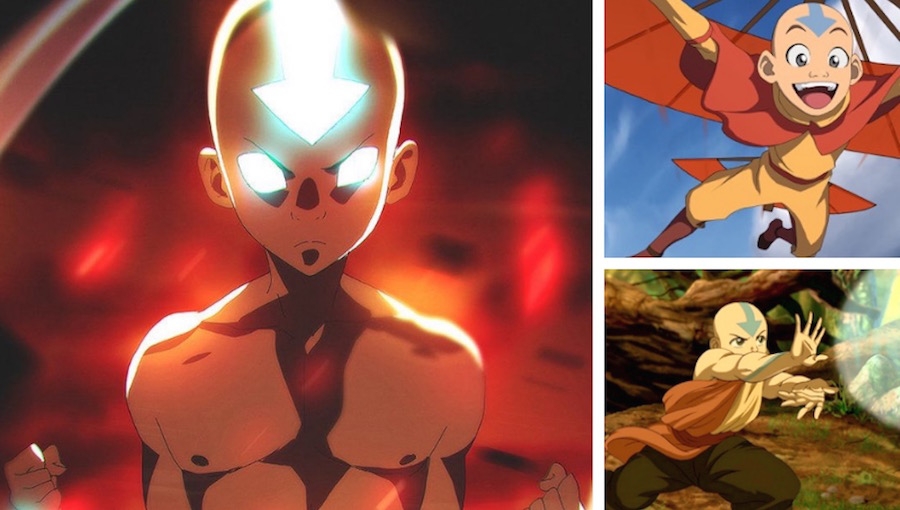With Thanksgiving fast approaching, we often find ourselves becoming more introspective, reflecting on the people and things for which we are thankful. As we at Fanbase Press celebrate fandoms, this year, the Fanbase Press staff and contributors have chosen to honor their favorite fandoms, characters, or other elements of geekdom for which they are thankful, and how those areas of geekiness have shaped their lives and values.
This year, as I am every year, I am thankful for the animated series, Avatar: The Last Airbender. I have watched this series many times and can honestly say I never get tired of it. Avatar is a story of adventure and family, filled with wonderful characters, amazing animation, humor, and drama. I can fill a long list with specific things I love about the story: Uncle Iroh’s witticisms, Toph’s brash fearlessness, Appa’s slobbery kisses, amazing animal hybrids (Badgermoles! Otter Penguins! Platypus Bears! Goat Gorillas!)…the list goes on and on.
At the heart of my unflagging love for this story, though, is Aang and his complex struggle to “save the world.” There are few 12-year-old boys anywhere in fiction with as much weight of responsibility on their shoulders as Aang. As the current incarnation of the Avatar, the only person with the ability to bend all four elements, Aang is tasked with saving his world from evil. It is a heavy destiny and a seemingly impossible task.
In the early seasons of the show, we watch Aang trying to balance this responsibility with his longing for a normal life. Raised as an Air Nomad, Aang has perfected air-bending skills, but still has to learn water, earth, and fire-bending. At first, he runs from his destiny. As he progresses, he continually doubts his ability to master each of the skills. He struggles to control the vast power he is able to manifest.
As Aang matures, he learns to embrace who he is and comes to an understanding of what is important to him. He understands that his power is both a necessary tool and extremely dangerous. At the same time, he fundamentally believes in the sacredness of life. It is the conflict between these two realities, ultimate power versus the desire to protect life, that we find one of the most vital themes of Aang’s story.
In the final episodes of the series, Aang is finally ready to come face to face with the “Big Bad,” Fire Lord Ozai; however, as the fateful confrontation approaches, it becomes apparent that the only way Aang will be able to stop Ozai is to kill him. Every voice around Aang, from trusted friends and mentors to his own past Avatar incarnations, tell him he will have to violate his most sacred principle in order to prevail.
As he grapples with this dilemma, Aang reaches through the spirit world to previous Avatars…who are, of course, simply prior reincarnations of Aang himself…for advice. They give him the following words of wisdom:
“You must be decisive.” —Avatar Roku
“Only justice will bring peace.” —Avatar Kyoshi
“You must actively shape your own destiny and the destiny of the world.” —Avatar Kuruk
“Selfless duty calls you to sacrifice your own spiritual needs and do whatever it takes to protect the world.” —Avatar Yangcheng
Aang is dismayed, because he believes these words once again support the inevitably taking of Ozai’s life; however, he has one more encounter, this time with a massive Lion Turtle, an ancient spirit with a fundamental connection to Aang’s bending skills.
The Lion Turtle tells Aang, “The true mind can weather all the lies and illusions without being lost. The true heart can tough the poison of hatred without being harmed. Since beginning-less time, darkness thrives in the void, but always yields to purifying light.” Aang heads off to his final battle with Ozai with a renewed faith that if he’s true to himself and the values he upholds, he will prevail.
I am endlessly grateful to have this story of moral struggle. The lessons Avatar: The Last Airbender has for society will never be irrelevant. It is a lesson in balance and fair-minded thinking. It is a constant reminder that hope can be found even in the darkest times. It is a profound affirmation that “going high” when others go low is the path to take. I am endlessly grateful for its ability to renew my own moral struggle in all circumstances.

